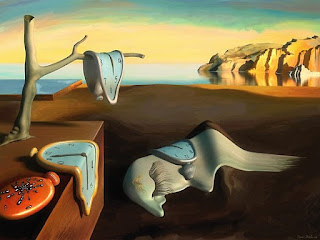Do I exist by chance?
This is a question all humans will ask at least once. Some people put it aside for the rest of their lives, and others make it the aim of their lives to find an answer to it.
Why do I exist? Pretty good question.
Many people have written articles on this before focusing on the idea that humanity will one day cease to exist, so why would a human life be worth living in the first place?
-My grandparents, great-grandparents, etc.
-That one exact atom had to meet with this exact atom out of thousands
The list continues.
In fact, the probability of a certain individual’s existence is so low, it tends to zero and is immeasurable. This leads to a clear conclusion; my existence must have been WILLED. After all, the chance of my existence just by luck is one over an infinity. And yet here I am.
Following this line of argument, Aristotle was able to conclude the following:
-My person is irreplaceable
-There exists a ‘higher power’ than a human, able to create a person.
-My life has been wanted.
Identity by Martin O'Neill
Why do I exist? Pretty good question.
Many people have written articles on this before focusing on the idea that humanity will one day cease to exist, so why would a human life be worth living in the first place?
These arguments would be deemed correct by a number of philosophers, such as Rene and Plato. Undeniably, we will all die. Life is not guaranteed (take a stillborn child, for instance), but death is.
They insinuate, just as did Plato and Rene, that despite the natural curiosity of a human being, his actions are worthless, because a human's existence will cease at a point in time.
Nevertheless, this argument can be refuted.
Aristotle believed that humans were ‘curious by nature’, as did Plato. However, when it comes to a human being infinitesimally small and insignificant because he is just a union of atoms floating through space and time in a much larger mass of atoms, Aristotle disagreed.
Carrying out a hypothesis test, he decided to calculate the probability of HIS existence. It goes as follows:
-My parents had to meet. At that precise point in time and space, they had to be looking at each other.-My grandparents, great-grandparents, etc.
-That one exact atom had to meet with this exact atom out of thousands
The list continues.
In fact, the probability of a certain individual’s existence is so low, it tends to zero and is immeasurable. This leads to a clear conclusion; my existence must have been WILLED. After all, the chance of my existence just by luck is one over an infinity. And yet here I am.
Following this line of argument, Aristotle was able to conclude the following:
-My person is irreplaceable
-There exists a ‘higher power’ than a human, able to create a person.
-My life has been wanted.
The last conclusion has enormous impact, because it implies the capability of a person’s development, and how they are able to contribute in a way that this strange ‘higher power’ has seen. In other words, this ‘higher power’ creature that created people has seen that a human life is worth living.
But why would it be worth living? Can we follow any other thought experiments to derive more characteristics of this ‘higher power’ creature? Well, we can leave those questions for another day…


Identity by Martin O'Neill

Comments
Post a Comment